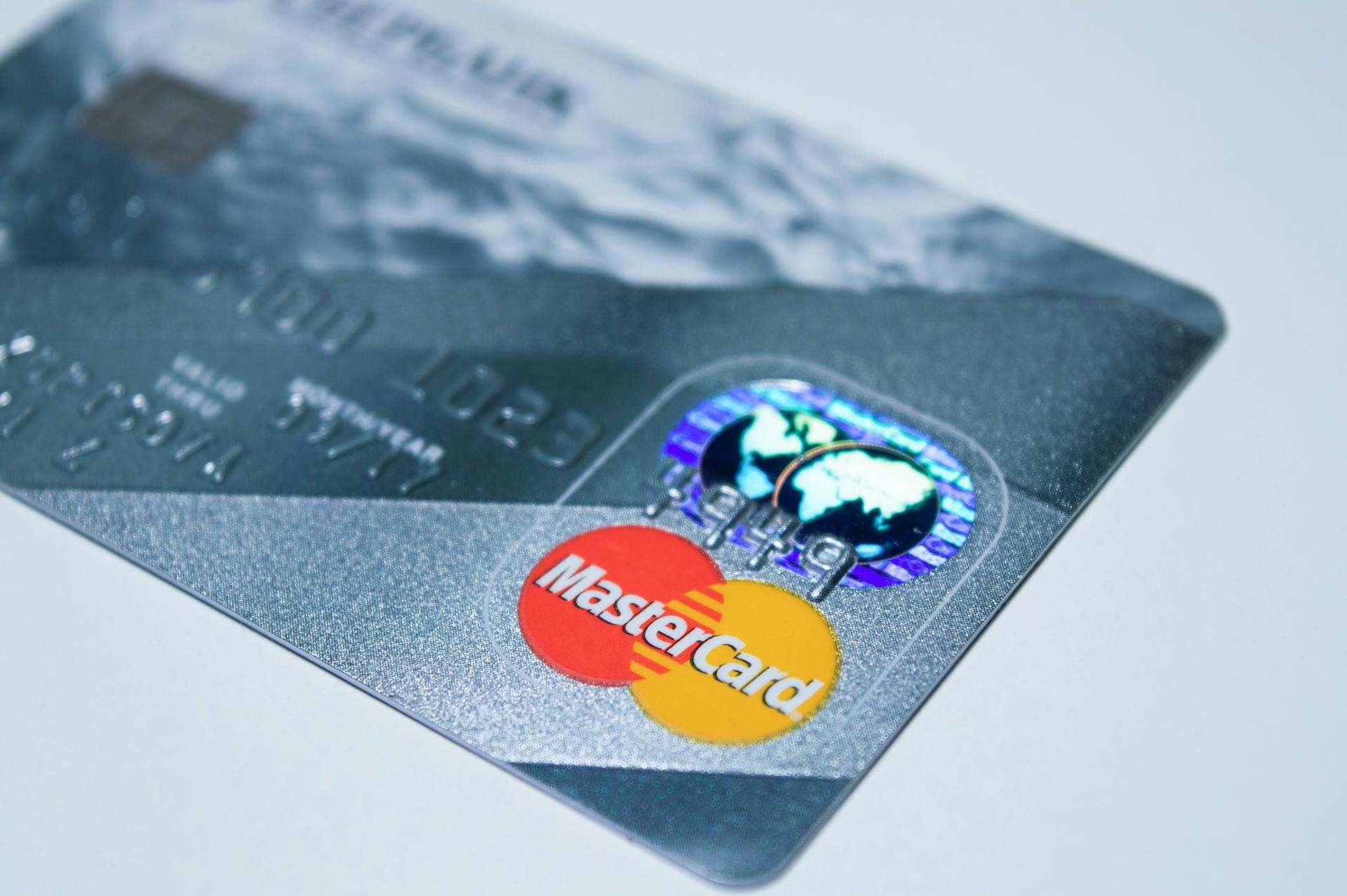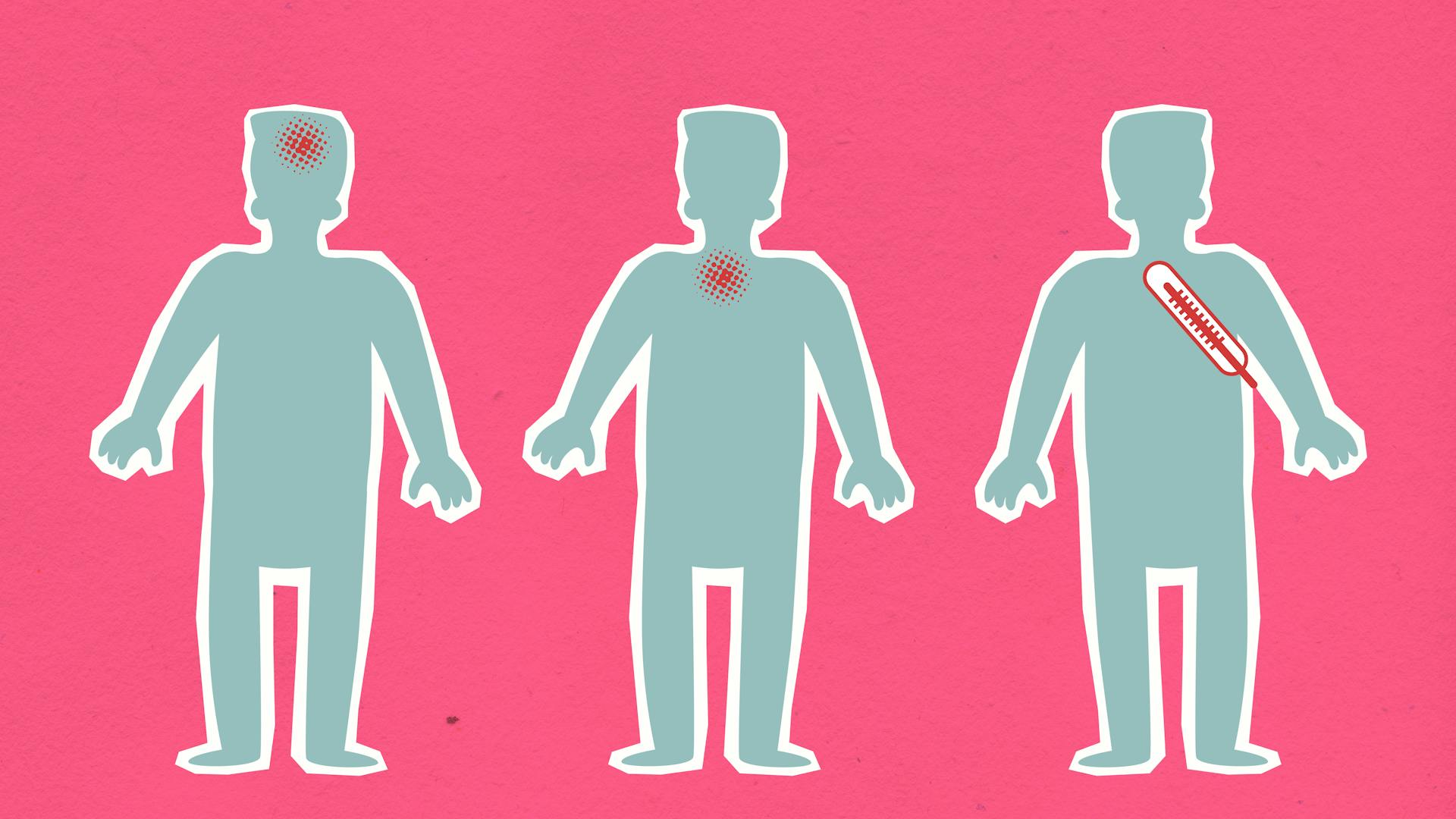
An Electronic Check, or Echeck, is a digital version of a paper check. It's a payment method that allows you to transfer funds from your checking account to another party's account electronically.
Echecks are a convenient alternative to traditional paper checks, which can take days to clear. They're also a cost-effective option for businesses and individuals alike.
One of the key benefits of Echecks is their speed. Funds are typically deposited into the recipient's account within 24-48 hours, compared to 3-5 business days for traditional checks.
Echecks are also environmentally friendly, reducing the need for paper and ink.
You might like: Cash App Mobile Check Deposit Funds Availability
Benefits of Using
ACH echecks are a convenient and cost-effective way to make payments, saving businesses valuable time and improving cash flow management.
They are faster, cheaper, and safer than using paper checks, with the added security of automated clearing house validation.
Businesses can save up to 50% of their time on accounts payable when using ACH payments through platforms like BILL.

eChecks are cheaper to process than paper checks and credit cards, with median costs ranging from $0.26 to $0.50 for ACH payments.
Processing fees for credit cards can be between 1.3% and 3.5% of every transaction, while eCheck fees can be as low as $0.10.
eChecks are processed faster than paper checks and don't require physical submission for deposit, making them a more efficient option.
They also enable more efficient record-keeping and can improve cash flow by eliminating issues associated with expired and reissued credit cards.
Here are some of the key benefits of using ACH echecks:
- Convenient recurring payments
- Secure transactions
- Inexpensive
- Improved cash flow
- Efficient record-keeping
By offering eChecks as an alternative payment method, businesses can attract cost-conscious customers and improve their bottom line.
Check Safety
Electronic checks are among the most secure payment methods available for businesses. Unlike paper checks, you can never lose or misplace an eCheck.
Unlike wire transfers, eChecks and other ACH payments can be reversed within a certain window of time, making them less vulnerable to fraudulent activity. This reversal window is no later than five business days after settlement.
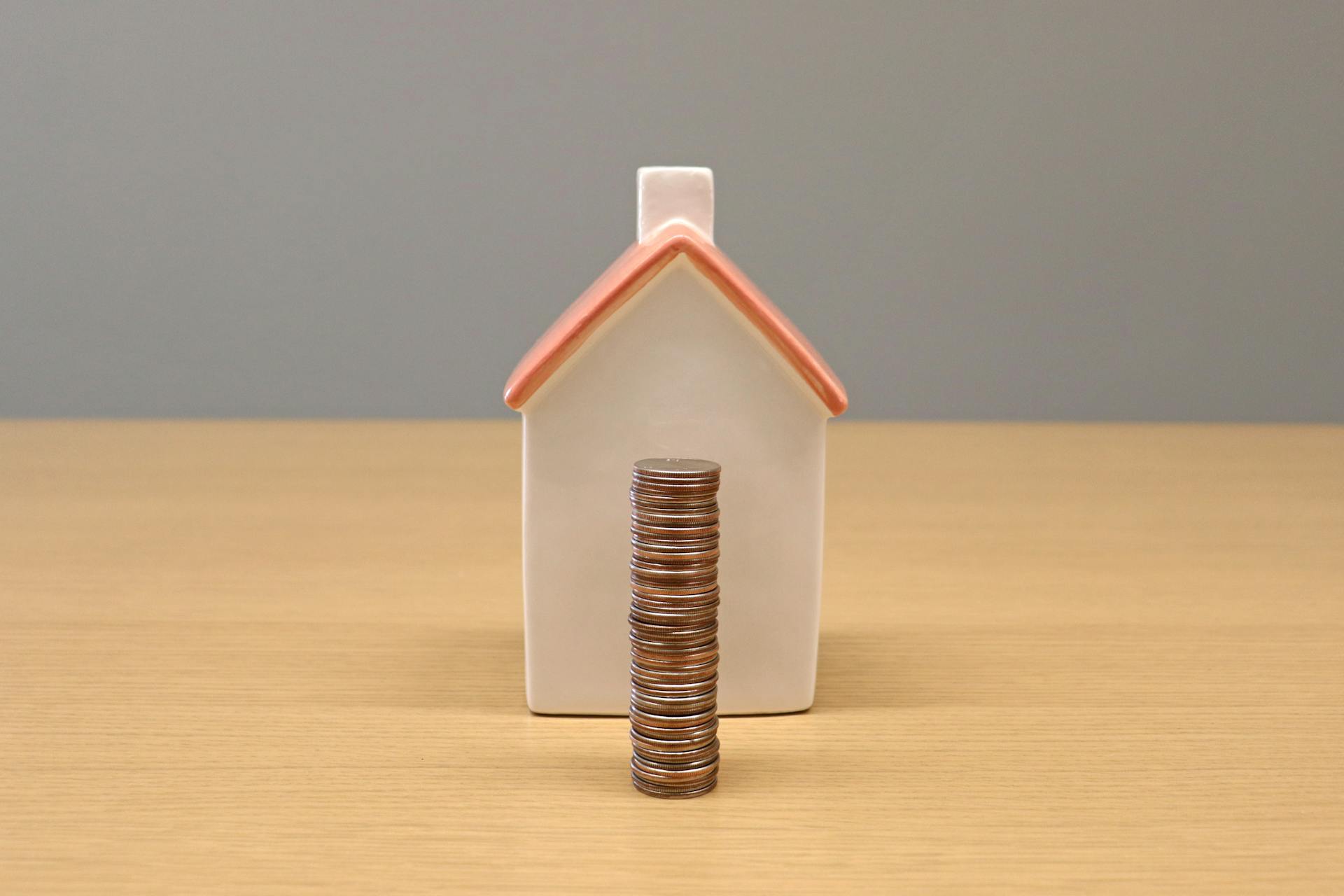
The ACH network, which processes eChecks, is regulated by the Federal Reserve and follows strict security protocols. This ensures eChecks are one of the most secure forms of payment.
eChecks provide a digital record for tracking and reconciliation, making it easier to keep track of your transactions. This digital record can also help you identify and resolve any issues that may arise.
Processing and Fees
Processing an eCheck can be a relatively low-cost option for both buyers and sellers. The average fee for an eCheck transaction ranges from $0.30 to $1.50.
For large purchases, eCheck payments can be more economical than credit cards for sellers. This is because the fees are typically lower than those associated with credit card transactions.
The exact fee you'll pay will depend on the type of eCheck merchant account you have.
Processing Costs
When processing an eCheck, the average fee can range from $0.30 to $1.50 per transaction, depending on the type of eCheck merchant account you have.
For large purchases, electronic check payments are much more economical than credit cards for sellers.
The cost of processing an eCheck is significantly lower than credit card transactions.
Weekend Processing
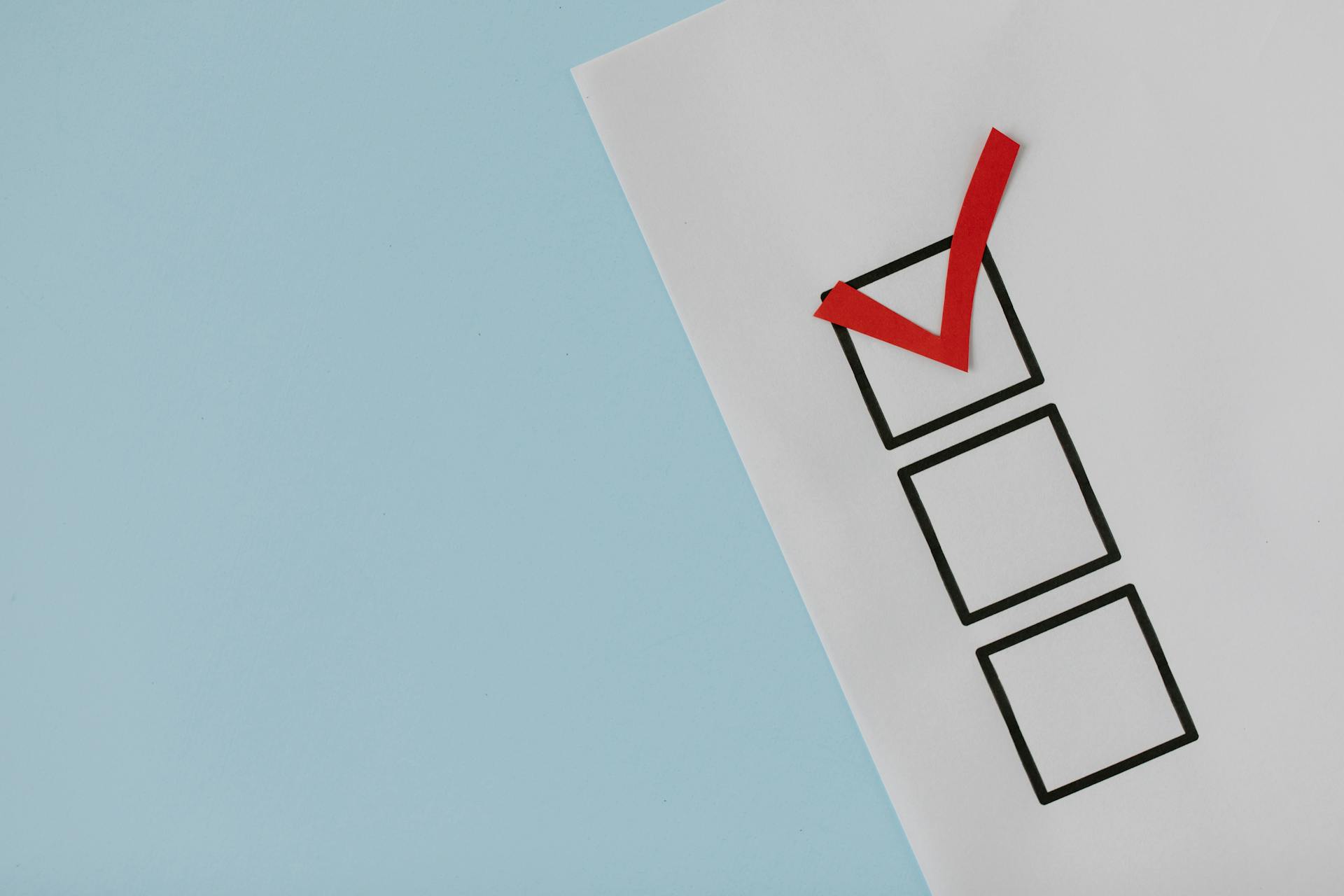
Electronic checks, or eChecks, can't be processed on weekends because the financial institutions involved typically operate on business days only. This means if your customer issues an eCheck payment on a Monday, it will likely be authorized by Wednesday or Thursday, but the funds won't reach your bank account until early the following week.
EChecks rely on financial institutions to process the transaction, which is why they're limited to business days. Your payment will process three to five business days after your transaction is authorized.
If you make a payment on Monday, your payment could clear as early as Thursday. This is because eChecks are done in batches to keep processing fees low, which means they take three to five business days to process.
A unique perspective: M and T Bank Statements
How E-Checks Work
E-checks are a convenient and efficient way to make payments, and they work similarly to paper checks, but with a digital twist. They eliminate the need for manual processing and reduce the time it takes for payments to clear.

To process an e-check, you need to request authorization from the customer, which can be done via an online payment form, signed order form, or recorded phone conversation. This step is crucial to ensure that the customer agrees to the transaction.
The payment set-up process involves inputting the payment information into online payment processing software, including the payment amount and schedule for recurring payments. Once the information is entered, the business can finalize and submit the payment.
Here's a breakdown of the e-check processing steps:
Funds are typically deposited into the merchant's bank account three to five business days after the transaction is initiated.
Works
ACH payments can post on the following day, but some banks like Bank of America offer same-day posting for eligible transactions.
You can send ACH payments and receipts through CashPro ACH, CashPro Connect, and CashPro API, making it easy to create and deliver a standard ACH-formatted file.
Check this out: One - Mobile Banking

If you're sending a direct debit, it may appear to go through initially, but it can still get rejected if the payer's account has insufficient funds.
It takes a day or two for a financial institution to verify an ACH transaction, so it's essential to ensure the payer has enough funds in their account.
A different take: Are Money Orders Certified Funds
How They Work
E-checks are a convenient and efficient way to make payments, but have you ever wondered how they work? They're similar to paper checks, but faster and more digital.
Most e-checks take 2 to 5 business days to settle, but the digital nature of e-checks eliminates the delays of receiving paper checks via snail mail. This means you can get paid faster compared to traditional paper checks.
Here's a step-by-step guide on how e-checks work:
- Request authorization: The business needs to gain authorization from the customer before making the transaction.
- Payment set-up: After authorization, the business inputs the payment information into the online payment processing software.
- Finalize and submit: Once information is properly entered into the payment software, the business clicks “Save” or “Submit” to start the ACH transaction process.
- Deposit funds: The payment is automatically withdrawn from the customer’s bank account, and the payment itself is deposited into the business’ bank account.
It's worth noting that an ACH payment can be rejected later if the payer’s account has insufficient funds. A direct debit can appear to go through initially, but because it takes a day or two for a financial institution to verify the transaction, it can still get rejected if the payer doesn’t have enough funds in their account.
If you need to send an e-check payment, make sure the recipient has an ACH merchant account, which allows them to use the ACH network to accept payments via electronic funds transfer.
Check Processing Speed
eChecks are a faster way to get paid compared to traditional paper checks, eliminating the delays of receiving checks via snail mail and having to go to the bank to deposit them.
The digital nature of eChecks allows for seamless electronic processing, making them a convenient option for both senders and recipients.
eChecks typically take three to five business days to process, which is a significant improvement over the 2 to 5 business day settlement period of paper checks.
This processing time is due to the fact that eChecks are done in batches to keep processing fees low.
Readers also liked: I M B Bank Share Price Today
Troubleshooting and Compliance
eChecks provide a structured legal framework that safeguards against fraudulent transactions and outlines clear protocols for resolving disputes fairly.
The Electronic Fund Transfer Act and the Uniform Commercial Code regulate eChecks in the United States, establishing requirements around authorization, error resolution, and disclosure of fees and policies.
Businesses that offer eChecks as a payment method can demonstrate their commitment to following these regulations and build trust with customers who appreciate working with a company that prioritizes adherence to consumer protection laws.
By choosing the regulatory-compliant path of eChecks, businesses can mitigate risk and avoid penalties for violations.
Operating Rule Changes
Operating Rule Changes are a crucial aspect of ACH transactions, and Nacha is continually updating its rules to prevent fraud and improve security. These updates can have a significant impact on financial institutions and businesses that process ACH transactions.
Minor changes to the Rules are expected to have little-to-no impact on ACH participants and no significant processing or financial impact.
Several minor topics are being addressed in the upcoming Nacha Operating Rule changes, including updates to the General Rule for WEB Entries, definitions of Originator, and Data Security Requirements. These changes will likely have a minimal impact on ACH participants.
New and amended Nacha Operating Rules will address credit push fraud and scams, including the codification of Expanded Use of Return Code R17 and the timing of Written Statement of Unauthorized Debit. These changes aim to prevent unauthorized debits and protect consumers.
Here's a summary of the key changes:
These updates demonstrate Nacha's ongoing efforts to improve the security and integrity of ACH transactions. By staying informed about these changes, financial institutions and businesses can ensure compliance and minimize potential risks.
Electronic Check Decline
Electronic check declines can be frustrating for both businesses and customers. If your customer's bank account has insufficient funds, their eCheck payment will bounce, just like a paper check would.
You have the option to decide whether to levy non-sufficient funds (NSF) charges for bounced eChecks. It's essential to have a clear policy in place for handling NSF charges.
Bounced eChecks can occur due to various reasons, including insufficient funds, closed accounts, or incorrect account information.
Curious to learn more? Check out: Nsf Cheque Bank Reconciliation
8. Facilitate Compliance
Facilitating compliance is a crucial aspect of operating a business. The Electronic Fund Transfer Act regulates eChecks in the United States.
Businesses that offer eChecks as a payment method can demonstrate their commitment to following regulations. This structured legal framework provides safeguards against fraudulent eCheck transactions.
The Uniform Commercial Code outlines clear protocols for resolving disputes fairly. By choosing the regulatory-compliant path of eChecks, businesses can mitigate risk and avoid penalties for violations.
Some alternative digital payment methods may operate in greyer legal areas without as much oversight. This can be a major concern for businesses that want to build trust with customers.
The Electronic Fund Transfer Act and the Uniform Commercial Code establish requirements around authorization, error resolution procedures, and disclosure of fees and policies. By following these regulations, businesses can protect themselves and their customers from potential issues.
Offering eChecks as a payment method sends a strong message to customers that a business prioritizes adherence to consumer protection laws. This can be a major selling point for customers who value transparency and accountability.
Types and Options
You can make various types of payments with eChecks, including rent, mortgage, car payments, and high-cost monthly fees like legal retainers or fitness memberships.
Merchants often accept eCheck payments for these high-cost items because they pay a smaller fee to process them compared to credit card payments.
Recommended read: High Interest Savings Account Kansas City
There are two common types of ACH payments: direct deposit and direct payment.
Direct deposit is like an employer's direct deposit program, where money is transferred directly from the employer's account to the employee's account.
Direct payments, on the other hand, involve sending and receiving funds, and can include ACH credits and debits.
Discover more: E S a Payments
Environmental Impact
Switching to eChecks can significantly reduce your carbon footprint, as they eliminate the need for physical transportation of paper checks.
EChecks also reduce the demand for paper and ink, which is a more sustainable option.
By making the switch, you can boost your business's reputation for sustainability, which can be a major draw for eco-conscious customers.
EChecks are a simple and effective way to make a positive impact on the environment.
Types of
Types of payments you can make with eChecks are often for high-cost items, such as rent, mortgage, or car payments, and high-cost monthly fees, like legal retainers or fitness memberships.
For another approach, see: Returned Mobile Ach Payme Nt - Cona
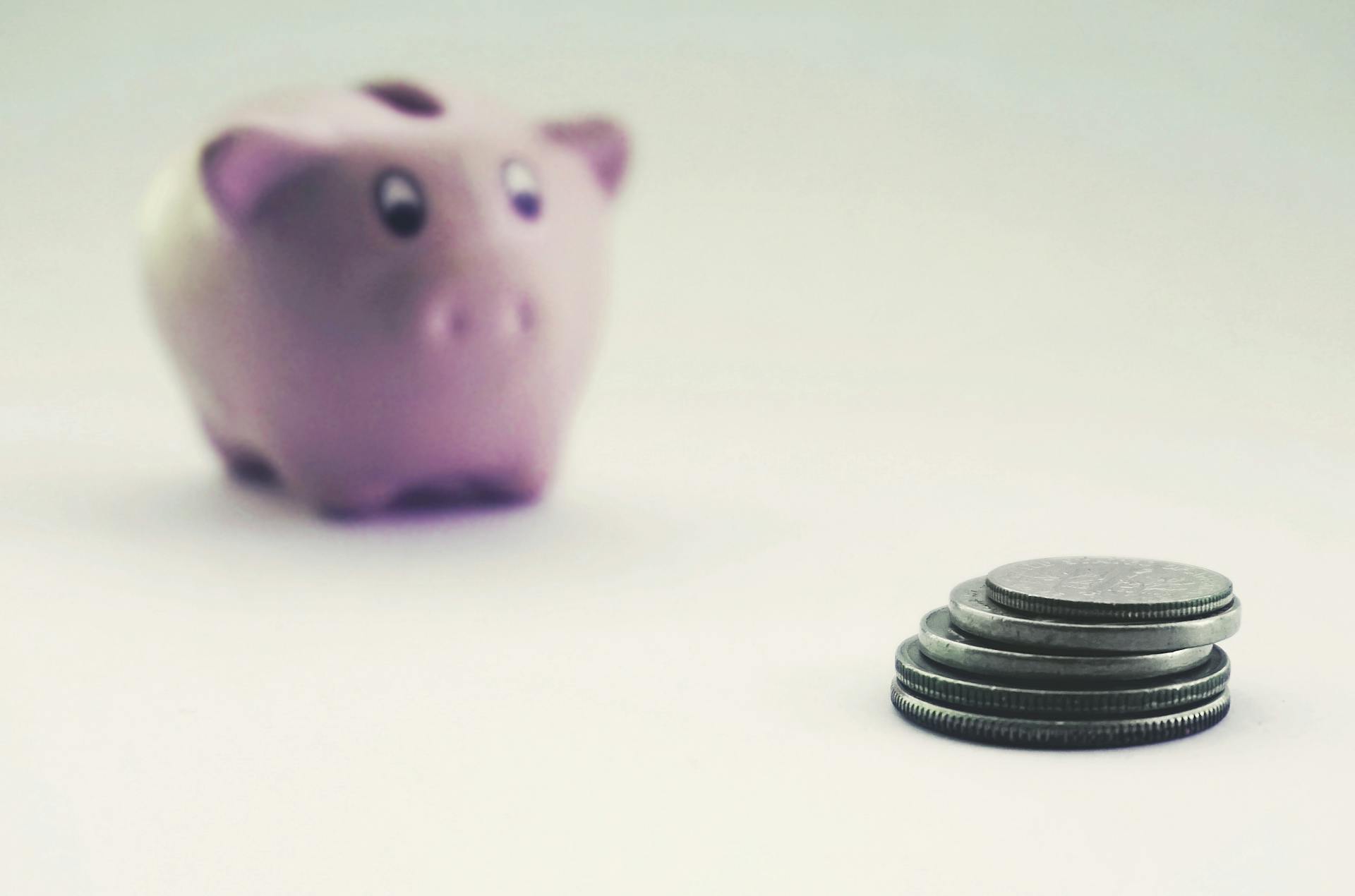
You might be surprised to learn that merchants pay a smaller fee to process eCheck payments compared to credit card payments.
Some common types of ACH payments include direct deposits from employers to employees' accounts, which can be a convenient way to receive paychecks.
A direct payment, on the other hand, is an exchange of funds between two parties, such as splitting a dinner bill with a friend.
Direct payments can include both ACH credits (receiving funds) and debits (sending funds).
Here are some examples of ACH transaction types:
Types and Options
You can use ACH payments for a wide range of transactions, including direct deposit, consumer receipts, business payments, tax payments, cash concentration, and cross-border payments. This makes it a convenient option for various financial needs.
ACH payments are particularly popular for recurring transactions, such as utility bills, insurance premiums, and mortgage payments. You can also use eChecks for recurring payments, which are essentially the same as recurring ACH payments.
Explore further: Wave Free Version Auto Bank Transactions
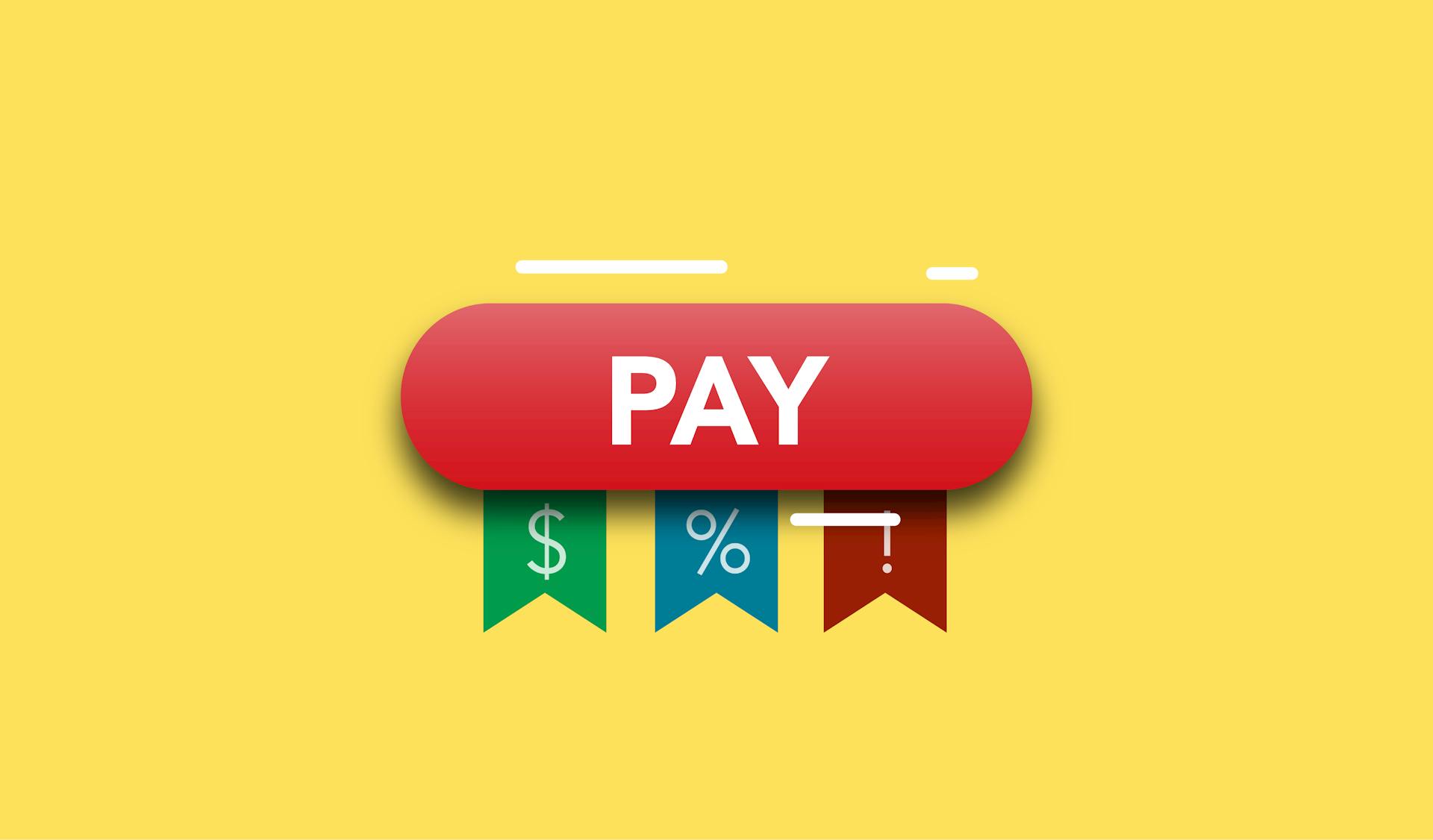
eChecks are a great option for big-ticket items and recurring payments because they're not subject to the same costly processing fees as credit card payments. They're also often used for rent, memberships, and subscription services.
Some common types of payments that can be made with eChecks include rent, mortgage, car payments, and high-cost monthly fees like legal retainers or fitness memberships.
Here are some benefits of using eChecks for recurring payments:
- Convenient recurring payments: By automating payments, you can avoid having to put a check in the mail every month.
- Secure transactions: Payment encryption makes eChecks more secure than writing checks.
- Inexpensive: eCheck transactions can be less expensive than traditional wire transfers.
Overall, eChecks and ACH payments offer a range of convenient and secure options for making various types of payments, from recurring transactions to big-ticket items.
Frequently Asked Questions
What is the difference between ACH and eCheck?
ACH and eCheck differ in scope, with ACH encompassing various types of transactions, while eCheck specifically refers to electronic checks between checking accounts
How do I pay someone with an eCheck?
To pay someone with an eCheck, you'll need to fill out an online payment form with your bank account and routing numbers, then authorize the payment through the ACH network. This process is similar to writing a paper check, but faster and more convenient.
Sources
- https://business.bofa.com/en-us/content/ach.html
- https://www.bill.com/blog/ach-eft-and-echecks-which-right-my-business
- https://www.versapay.com/resources/what-are-echecks-benefits-accepting-echecks-b2b-businesses
- https://paysimple.com/blog/how-do-echecks-work/
- https://www.capitalone.com/learn-grow/money-management/ach-payments-transactions/
Featured Images: pexels.com
